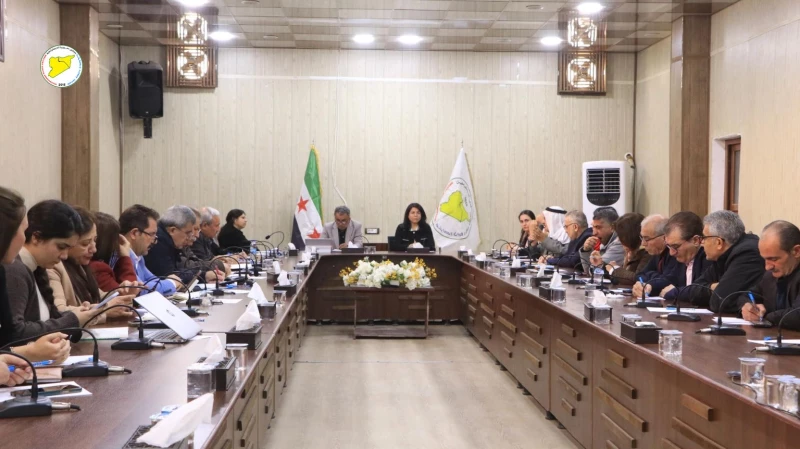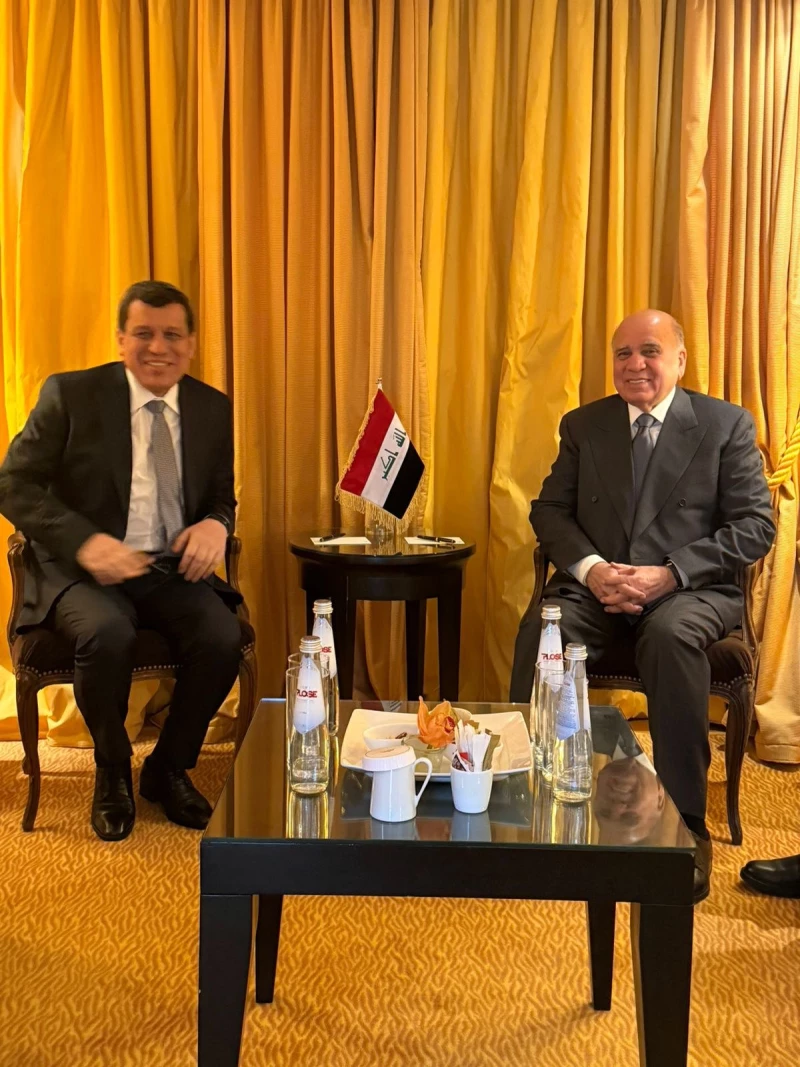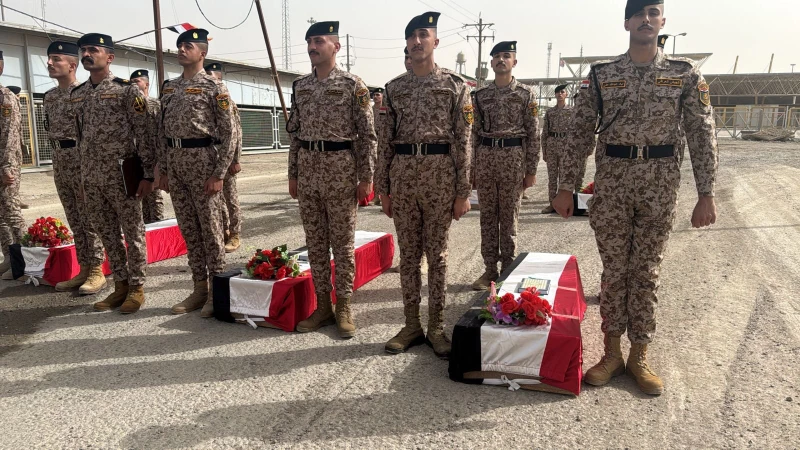BAGHDAD, Iraq - Talks between Iraq and the US to evaluate the withdrawal of coalition forces are proceeding positively, an advisor to the Iraqi Prime Minister said on Tuesday.
“There are a number of topics that are being agreed on, the core objective behind these committees is the meticulous technical evaluation of the military landscape by military personnel aiming to evaluate the necessity of foreign troops on Iraqi territory,” Security Policies Advisor to the Iraqi Prime Minister, Khalid al-Yaqobi told the New Region on the sidelines of the Rafidain Forum.
“The process is ongoing, I find the process to be very effective and it appears that matters are progressing positively in this regard,” he added.
#Exclusive: The New Region’s interview with the Security Policies Advisor to the Prime Minister of #Iraq, Khalid Al-Yaqobi, we asked @DrYaqobi about the withdrawal of the global coalition troops from Iraq. pic.twitter.com/KBdevBMF09
— The New Region (@thenewregion) March 7, 2024
Attempts to end the global coalition’s mission have solidified from the Iraqi side following US attacks on bases and facilities belonging to Popular Mobilization Forces, targeting leaders and members of the group.
Following an attack in early February that killed two officials from the pro-Iran Kataib Hezbollah, which is officially incorporated into the Iraqi armed forces, Iraq’s top military spokesperson Yehia Rasool said that the Iraqi government’s will to end US presence in the country is now “more than ever”.
Though the US has on multiple occasions claimed that the global coalition is in Iraq upon the invitation of the Iraqi government to help and train Iraqi troops in the fight against ISIS, and claims that troops remaining in the country serve an advisory and training role, it has always remained a serious question whether the Iraqi armed forces are now able to defend Iraq in case of a new insurgency.
The Iraqi government has on several occasions said that the threat of ISIS is no more and therefore there is no need for foreign troops to remain in the country.
Addressing attacks from neighboring Iran and Turkey on Iraqi land, the Iraqi PM’s advisor said that Iraq is taking diplomatic approaches to reach an understanding with Tehran and Ankara.
“Iran is a pivotal neighboring country, it is imperative that we address all outstanding issues through diplomatic channels,” Yaqobi said. “Same with Turkey.”
“I believe that both countries, alongside Iraq, are diligently working to diplomatically resolve all issues,” he added.
#Exclusive: The New Region’s interview with the Security Policies Advisor to the Prime Minister of #Iraq, Khalid Al-Yaqobi, we asked @DrYaqobi about the constant attacks on Iraq by #Iran and #Turkey pic.twitter.com/xna6qBE6Mb
— The New Region (@thenewregion) March 7, 2024
Multiple Iranian ballistic missiles and one-way attack drones were directed at Erbil by Iran’s elite Islamic Revolutionary Guard Corps (IRGC) on January 15.
The IRGC claimed responsibility for the attacks, adding that they had targeted an Israeli intelligence spot in Erbil, a claim that has been denied by Iraqi and Kurdish officials repeatedly.
The Iraqi government immediately after the attack sent over a team led by National Security Advisor Qasem al-Araji to investigate the site of the attack, who concluded that the house targeted was no intelligence base.
This was not the first time he had made such a conclusion, nor is it the first time Iran had targeted the house of a Kurdish businessman inside Erbil.
In a five point letter to UN Secretary General and the President of the UN Security Council on January 16, Iraqi Foreign Minister Fuad Hussein said that the Iraqi government “stressed that the attack constitutes a flagrant violation of the sovereignty and territorial integrity of Iraq and the security of the Iraqi people.”
Turkey has also elevated its aerial attacks on the Kurdistan Region’s borders.
According to data from Iraqi Minister of Interior, Turkish forces have advanced between 15 to 20 kilometers into Iraqi territory, however according to Yaqobi, Prime Minister Mohammed Shia al-Sudani’s efforts are to resolve issues with the Turkish side through diplomacy as well.
“I anticipate that in the upcoming month, Mr. Erdogan will pay a visit to Baghdad, a visit of considerable significance,” he said.

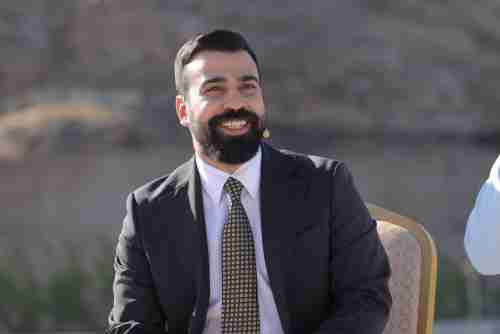
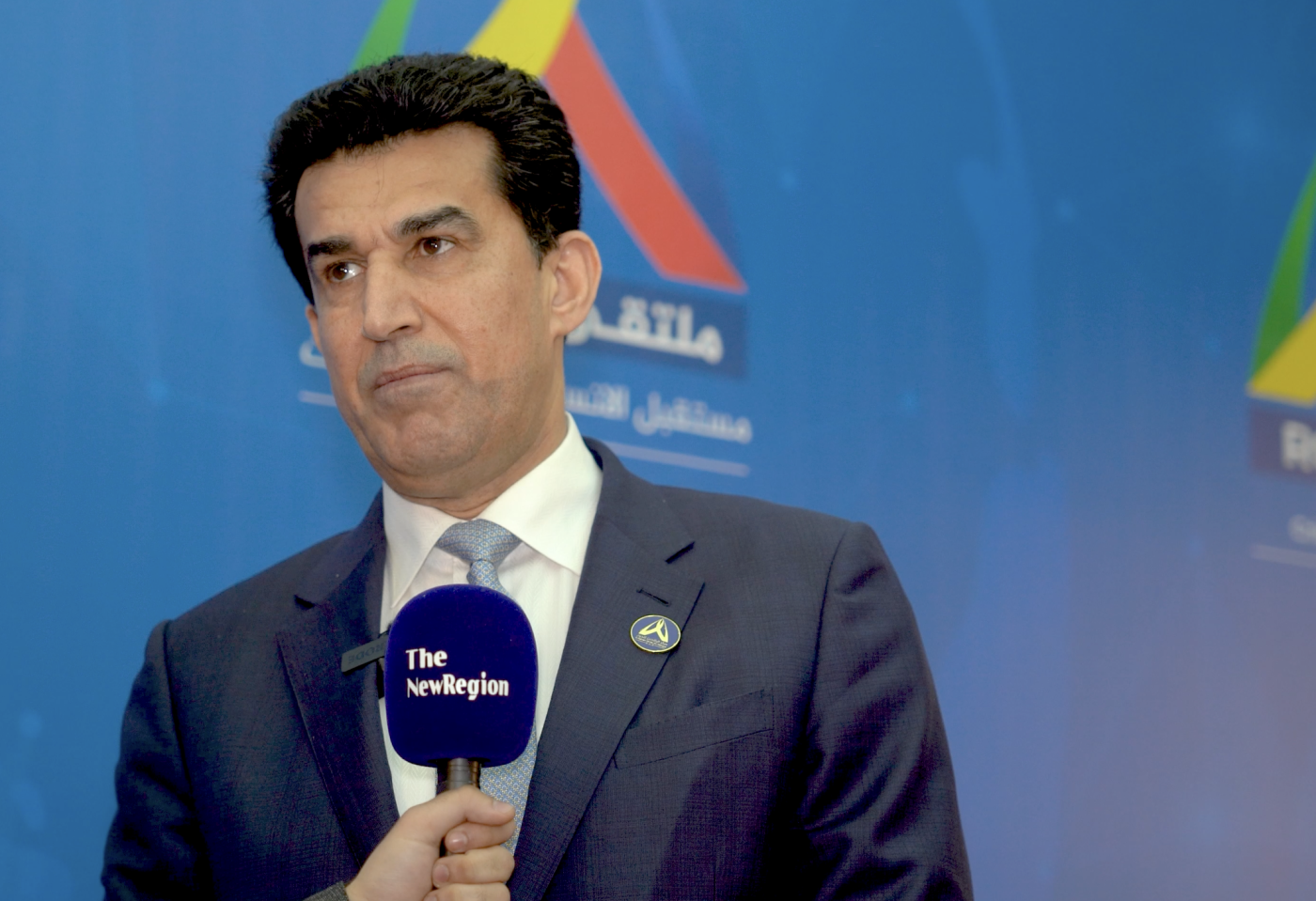
 Facebook
Facebook
 LinkedIn
LinkedIn
 Telegram
Telegram
 X
X
